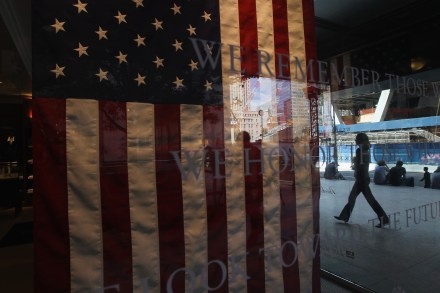Department of Homeland Absurdity
A telling admission from Janet Napolitano, heid-bummer at the ludicrous (though founded for obvious, understandable reasons) Department of Homeland Security: “We are moving towards an intelligence and risk-based approach to how we screen [people at airports],” Napolitano told Mike Allen during a morning forum at the Newseum. “I think one of the first things you will see over time is the ability to keep your shoes on. One of the last things you will [see] is the reduction or limitation on liquids.” In other words, current policy has nothing to do with intelligence or risk and is, by the US government’s own admission, stupid. And, this being government it is






